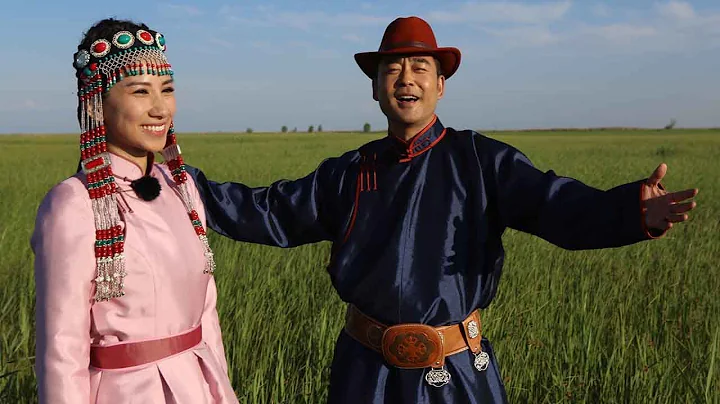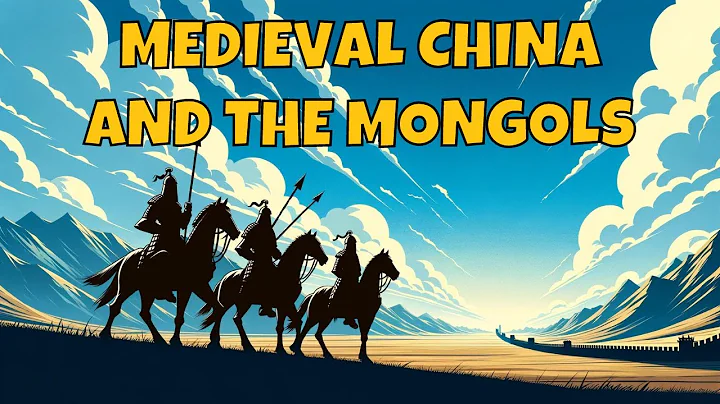One afternoon in January 1936, the Kuomintang's "Literary Secretary" Chen Bui was brought to Chiang Kai-shek's office by Dai Li.
When Chen Brai saw Chiang Kai-shek sitting at his desk with a gloomy face, he knew that things were not simple, so he quickly put on a solemn expression.
Chiang Kai-shek pointed to the report on the table and said expressionlessly: "You take a look at this report first."

Chen Brai did not dare to neglect and quickly picked it up and read it in detail.
He discovered that the report was "On Strategies Against Imperialism" written by Mao Zedong of the Communist Party of China.
Needless to say, Mao Zedong's writing skills are also full of useful information. He describes the necessity of establishing a national united front against the backdrop of the Japanese invasion of China, and comments on his comprehensive understanding of the Chinese revolution.
Of course Chen Brai has long heard how powerful Mao Zedong's writing is, and Chiang Kai-shek is also very aware of it. He just doesn't know why Chiang Kai-shek suddenly did this.
Seeing Chen Brai's expression, Chiang Kai-shek said seriously: "What do you think of this report?"
Of course Chen Brai knew Chiang Kai-shek and how much he hated Mao Zedong.
He quickly said: "From a political point of view, the Communist Party's views are very different from ours, and we cannot fully agree with them. But from a literary perspective, this report is thorough in reasoning and profound in writing. It can be regarded as an excellent work."
heard that Chen Brei After praising Mao Zedong like this, Chiang Kai-shek pointed to the pamphlet on the table and said leisurely: "Do you know what these books say about Mao Zedong?"

Chen Brai understood the implication of Chiang Kai-shek's words, so how should he answer Chiang Kai-shek's question? And when Chiang Kai-shek called Chen Brai here, what did he want Chen Brai to do for him?
The famous young pen Chen Brei
Chen Brei became a famous reporter for Shanghai's "Tianduo Daily" very early. At that time, his articles were well received. He wrote many articles supporting the Revolution of 1911 and was highly admired by the Kuomintang revolutionaries. .

In those articles, we can feel Chen Brai's enthusiasm for the revolution from between the lines.
Later, he also translated the English version of the "Foreign Declaration" drafted by Mr. Sun Yat-sen on behalf of the Provisional Government. It can be seen how much status Chen Brai, who was in his twenties at the time, had in the Shanghai literary world.
In the early 1920s, Chen Brai, who had been writing in the newspaper industry for more than ten years, was very excited when he saw the Kuomintang and the Communist Party entering into their first cooperation and jointly launching the Northern Expedition.
At that time, he was already the editorial director of the "Business Daily". Sun Yat-sen commented that his articles were more influential than newspapers run by the Kuomintang, and "can be called a loyal party newspaper."
At that time, many of Chen Brei's views in newspapers were basically consistent with the Communist Party's ideas. The then CCP leader Xiao Chunu also publicly praised Chen Brai's work.

After the victory of the Northern Expedition, Chiang Kai-shek realized that he lacked some ideas and was unable to confront the Communist Party head-on in the literary field.
He initially planned to find Chen Xunzheng within the Kuomintang to serve him. But he soon discovered that he could not invite Chen Xunzheng, and Chen Xunzheng also introduced Chen Buili to him.
Chiang Kai-shek was more careful this time. He knew that Chen Brai was known as one of the "four major writers" in the Chinese newspaper industry and was not easy to contact.
He invited Shao Lizi to go to Shanghai and met Chen Bulei in person. After Shao Lizi's persuasion, Chen Bulei finally put aside his status and formally entered politics.
Chiang Kai-shek was able to successfully enter the inner circle of power, and Chen Brai contributed considerable strength.
He used his writing style to publish many articles that were beneficial to Chiang Kai-shek in major literary journals. These contents made more and more KMT progressives acquiesce in Chiang Kai-shek's growth.

The Anti-Japanese Years at the Highlight of His Life
Faced with the Japanese invasion of China, Chen Bulei particularly hated the behavior of the invaders, but his writing style could not be used for it.
Since the Japanese army invaded and occupied the three eastern provinces of my country in 1931, Chiang Kai-shek has been pursuing the strategy of "reconciling the outside world before settling the country inside" and intensified the encirclement and suppression of the Communist Party.
At that time, these policies aroused widespread complaints across the country. As Chiang Kai-shek's chief writer, Chen Bulei had to smooth over these voices that opposed Chiang Kai-shek's policies, so most of his articles at that time were published on the side of Chiang Kai-shek.
After the "918" incident, the "Declaration of the Chinese Communist Party on the Rape and Occupation of the Three Northeastern Provinces by Japanese Imperialism" issued by the Chinese Communist Party aroused nationwide discussion.

It was at that time that Chiang Kai-shek and Chen Brai were at their desks, discussing Mao Zedong’s anti-Japanese pamphlets.
Chiang Kai-shek did not believe that these were written by Mao Zedong himself. He firmly believed that the think tank behind Mao Zedong was at work, and he had to rely on this former top four newspaper writer to add glory to himself.
In fact, Chen Brei’s job is getting more and more difficult. His writing is limited to spreading the content of the Kuomintang’s passive avoidance of war. No matter how high-quality the writing is, it cannot modify the feeble sophistry. It is destined that his copywriting will not be received. More favor.
The story at the beginning of this article took place during this period.
In January 1936, Dai Li called Chen Brai to Chiang Kai-shek's office again. Facing Chiang Kai-shek's cross-examination, Chen Brai was very embarrassed.
At that time, it was difficult for Chen Brai’s articles to be discussed because the contents were mostly cliche, small-scale and lacked a foothold. On the contrary, Mao Zedong's articles were well-founded and even more lofty.
At that time, Chiang Kai-shek threw a few pamphlets on the table and said loudly to Chen Bulei: "These few small books explain the truth clearly and clearly, so that people who read it will know immediately that Mao Zedong is a learned and capable person." There are experts around Mao Zedong!"
Chen Buile picked up these books and found that these pamphlets were actually written by Mao Zedong in the early days of the Anti-Japanese War. He was a little confused, why should we use Mao Zedong's manuscripts to see how to evaluate Mao Zedong?
It turns out that Chiang Kai-shek never believed that Mao Zedong could have such writing style.
In his eyes, these were all written by secretaries around Mao Zedong for him, just like what Chen Brai did for himself. As everyone knows, Mao Zedong's writing power has always been very terrible.
's " Qinyuan Chun·Snow " was once popular in China, and Chiang Kai-shek could not believe that it was written by Mao Zedong himself. And even Chen Brai can't hold a candle to him.
Chen Brai's useless days continued until the Xi'an Incident. After being "persuaded", Chiang Kai-shek finally turned around and began to unite in the war of resistance.
At this time, Chen Brai was greatly encouraged and published many high-quality copywritings. The most representative of them was the sentence Chiang Kai-shek said into the microphone in the external speech delivered by Chiang Kai-shek and ghostwritten by Chen Brai:
"Peace has not yet arrived." In times of despair, we will never give up on peace; we will never sacrifice lightly until the last minute. If the war breaks out, no matter whether the land is north or south, no matter how old or young, everyone has the duty to defend the land and resist the war..."

Chiang Kai-shek's speech boosted the Kuomintang's anti-Japanese enthusiasm and ignited Chen Bulei's hope.
After that, Chen Brei continued to publish articles on anti-Japanese issues. Years later, Chen Brei’s favorite speech was still Chiang Kai-shek’s speech. According to Chen Brei’s own evaluation, it was truly “the writing is shocking, and the writing is weeping.”
That is not only his work that condenses national sentiments, but also the unhappiness he has been holding in his chest since the Japanese invasion of China.
Since then, Chiang Kai-shek has given many anti-war speeches on various occasions, and most of his speeches were written by Chen Brai.
Those speeches ended with thunderous applause again and again, but only Mr. Chen Bulei himself knew that behind those impassioned speeches, how sincere was the speaker Chiang Kai-shek in resisting Japan?

Disobedience in the War of Liberation
After the Japanese surrender, Chiang Kai-shek once again made Chen Bulei feel uncomfortable.
Chen Brai was very happy to see the end of the war, but when he saw that the name of Zhu De, the only Communist, had been erased from the Chinese surrender list he had drawn up, a look of disappointment appeared on his face.
Chen Brai reminded Chiang Kai-shek: "There is not a single CCP representative on the list. I'm afraid it's hard to explain to the outside world, right?"
"Just let Zhu De stand by." Chiang Kai-shek did not agree with Chen Brai's statement.
Having worked together for so many years, Chen Brai knew Chiang Kai-shek's intentions, so he only gave the CCP one spot on the long list of surrenders. But he also didn't expect that Chiang Kai-shek could handle things so brilliantly. After he returned home, he commented on Chiang Kai-shek with his family:
"Sir, you don't even have this kind of courage. I'm afraid it will be self-defeating in the future..."

As smart as Chen Builei, he knew that Chiang Kai-shek would not be able to do this.
At this time, Chen Brai was still feeling the kindness of Chiang Kai-shek. Under such circumstances, under the instruction of Chiang Kai-shek, he wrote the article "China's Destiny".
In this article, Chen Brai held up Chiang Kai-shek's theory and insisted that China can only rely on "one doctrine and one political party", and this doctrine is the Kuomintang's Three People's Principles , and the political party can only be the Kuomintang led by Chiang Kai-shek.
After the end of the Anti-Japanese War, the call for peace was particularly loud, but Chiang Kai-shek's dictatorial intentions were well known to everyone.
When Mao Zedong came to Chongqing regardless of his personal safety, it caused quite a shock in all walks of life. All kinds of patriotic celebrities and literati came to communicate and discuss with Mao Zedong.

In order to prevent the CCP from having a greater influence in Chongqing, Chen Bulei had to work for various newspapers at one time, asking them to report the CCP's travels in the form of government drafts, and at the same time he had to stay up all night writing Chiang Kai-shek's speeches. While he was busy, he still expressed his admiration for the CCP's work enthusiasm and ideological concentration.
Faced with the harsh requirements, the Communist Party's various concessions not only did not make Chen Brai feel relaxed, but even felt like a thorn in his back. He knew that the Double Ten Agreement was originally Chiang Kai-shek's delaying strategy, but he did not expect that Mao Zedong could take such a move.
After the outbreak of the civil war, Chen Brai's disappointment in Chiang Kai-shek reached an all-time high.
As Chiang Kai-shek's mouthpiece, Chen Brai watched the Kuomintang's defeat and the four major families crazily amassing money. He could no longer stand Chiang Kai-shek's blind confidence.
Faced with such a defeat, Chen Brai repeatedly hoped that Chiang Kai-shek could hold peace talks, but Chiang Kai-shek retorted by saying that "peace talks mean surrender" and severely reprimanded Chen Brai.

Chen Brai has been gradually hidden since then.
In his speech on November 8, 1948, Chiang Kai-shek even put forward the slogan "The war of resistance will take eight years, and the suppression of bandits will also take eight years." This slogan was not written by Chen Brei, and when Chen Brei heard this slogan, he shook his head.
Faced with the chaos of the Kuomintang during the War of Liberation, Chen Brai, as a scholar, had no way to change the status quo.
He once said privately to his good friend and Bole Shao Lizi: "The Kuomintang is now in decline. The current root cause of bad things is the word 'money' and the other is the word 'power'. These two words have harmed the Kuomintang." "Of course Shao Lizi knew how heartbroken his friend was, but he could only say this: "You and I have no way to save ourselves, we can only die together with this sinking ship."

Hateful. After the final literary
Chen Builei withdrew from the "Business Daily" that year, his entry into politics can be said to have been a meteoric rise.
In addition to his status as Chiang Kai-shek's personal secretary, he also held various positions such as secretary of the Central Department of the Kuomintang, standing deputy director of the Ministry of Education, deputy director of the Central Propaganda Department, and acting secretary-general of the Central Political Committee.
So many important positions are compatible with Chen Brai, which has earned him the reputation of "Leader's Bold Leader" and "President's Think Tank".
As mentioned above, Chen Brai, who was famous, was actually increasingly disappointed with the Nationalist Government. He was once an ambitious young man who loved revolution very much, and he was even more fond of the Communist Party.
If Chiang Kai-shek had not lowered himself to invite him, maybe he would have joined the Communist Party like his good friend Shao Lizi. If Chiang Kai-shek did not think highly of him, perhaps he would have already joined the light.

Especially when facing Chiang Kai-shek, who appeared to be a gentleman but was actually a butcher, Chen Brai always showed a painful expression.
He once wrote in his diary: "I cannot make my own opinions on today's words and thoughts. The body and soul have gradually become one with others. Life is full of instincts, who can be willing to do this!"
He once met an old friend once At the party, he compared his feelings under Chiang Kai-shek like this: "A married woman cannot disobey her master."
On November 12, 1948, the defeat of the Kuomintang was already certain, but Chen Bulei did not give up on Chiang Kai-shek's " "The grace of acquaintance", but he has already understood the fate that will follow.
He looked very solemn that day. He took his adjutant to the barber shop to tidy up his appearance, and then told the adjutant: "I have to write something important tonight. If any guests are missing or the phone is not answered, don't come up. Urging me to sleep, I wrote that I would take medicine and sleep. "

After saying this, he started to go upstairs, but halfway up, he asked again because he was worried, and then he went upstairs safely.
The adjutant thought that he really had to write a very important manuscript. Who knew that this important manuscript turned out to be his suicide note.
As a scholar, Chen Brai left suicide notes for his wife, children, brothers and friends, and then took a large amount of sleeping pills and passed away.
Faced with Chen Brai's death, Chiang Kai-shek was very heartbroken and evaluated him as "the perfect man of our time". But everyone within the Kuomintang knew that Chen Brai's death had something to do with Chiang Kai-shek.
Chiang Kai-shek only took a fancy to Chen Brai's writing style, but never cared about his political opinions.
Chiang Kai-shek was stubbornly unwilling to accept peace talks and even issued the absurd slogan "it will take eight years to suppress the bandits". These were the reasons why Chen Bulei suffered a huge blow in his heart.

There was an anecdote very similar to the opening story in early 1948.
At that time, Mao Zedong's article " The Current Situation and Our Tasks " was hotly discussed throughout the country, and most domestic literati could feel the advent of a new era.
At that time, Chiang Kai-shek wanted to use this manuscript to ridicule Chen Brai again: "Look how well written his articles are!"
Who knows that at this time, Chen Brai was no longer as timid as in 1937, but immediately responded: " I wrote the article myself!" This sentence left Chiang Kai-shek completely speechless.
Perhaps at this time, Chen Brai had as much hatred for Chiang Kai-shek as he respected him. There is no longer any intention to save the Kuomintang government that is about to collapse, and it is probably already determined to die.












